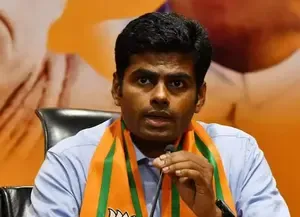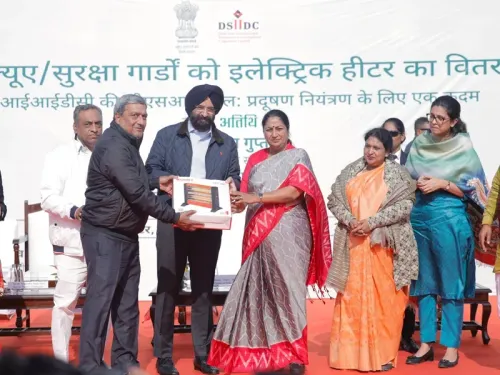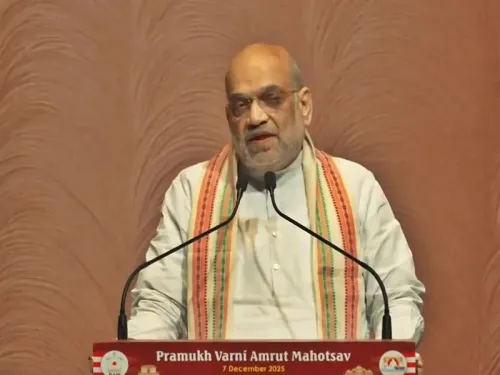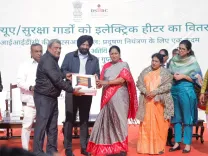Tamil Nadu BJP's Three-Language Policy Supports Multilingual Education

Synopsis
Key Takeaways
- The three-language policy aims to promote multilingual education.
- Annamalai refutes claims of Hindi imposition.
- Significant funds allocated for languages like Sanskrit.
- Stalin defends the two-language policy of Tamil and English.
- Concerns over cultural preservation and state autonomy.
Chennai, March 25 (NationPress) The President of Tamil Nadu BJP, K. Annamalai, has emphasized that the three-language policy proposed in the National Education Policy (NEP) 2020 is intended to give students the chance to learn multiple languages and is not an effort to enforce Hindi, as claimed by Chief Minister M.K. Stalin.
On the social media platform ‘X’, Annamalai remarked: “By misrepresenting the policy as a means to impose Hindi, the Chief Minister has highlighted the DMK’s concealed agenda—that only those who can afford to learn different languages should have access to them.”
Referring to the policy note from the School Education Department, Annamalai indicated that the Tamil Nadu government itself has allocated substantial funds for the promotion of Sanskrit and other languages.
He noted that Rs 11 crore was spent on promoting Sanskrit for the year 2024–25, with Rs 10 crore set aside for the following year, 2025–26. Moreover, Rs 13 crore was allocated for the promotion of other languages in 2024–25, with Rs 14 crore planned for 2025–26.
Annamalai also challenged the DMK government’s dedication to linguistic diversity. “The Chief Minister must clarify what actions the DMK government has undertaken to advance Sanskrit and other languages in the State,” he stated.
Earlier, Chief Minister M.K. Stalin reaffirmed the Tamil Nadu government’s strong adherence to the two-language policy of Tamil and English during his address in the State Legislative Assembly.
He vehemently opposed the introduction of a third language, particularly Hindi, cautioning that it would not only endanger the Tamil language but also threaten Tamil culture and identity.
“We cherish the two-language policy because history has shown us that allowing another language will consume our own. The imposition of Hindi is not merely a language issue—it’s a cultural annihilation,” the Chief Minister asserted.
His remarks arose amid increasing worries that the Union government is attempting to enforce the three-language policy through national initiatives like PM SHRI schools—an initiative that Tamil Nadu has chosen not to participate in.
M.K. Stalin also dismissed claims from the Centre that Tamil Nadu had previously consented to the implementation of the three-language formula.
“Let there be no doubt - we are resolute. We will not accept the trilingual policy under any circumstances,” he declared.
He further accused the BJP-led Central government of seeking to dominate states by imposing Hindi and using financial tactics as punitive measures.
“They view the states as regions of indentured labor. This is why they engage in language imposition and financial injustices. We must completely end this. We are compelled to take appropriate steps to protect the federal framework of India and uphold the autonomy of the states.”
The Chief Minister underlined that it is only by ensuring state autonomy that the Tamil language, culture, and people can be effectively safeguarded.
“This issue transcends funding - it pertains to ethnicity, language, and identity. We are not subservient individuals who will sacrifice our pride for financial benefits. This is the Dravidian model of governance - if there are obstacles, we will overcome them,” the Chief Minister concluded.










